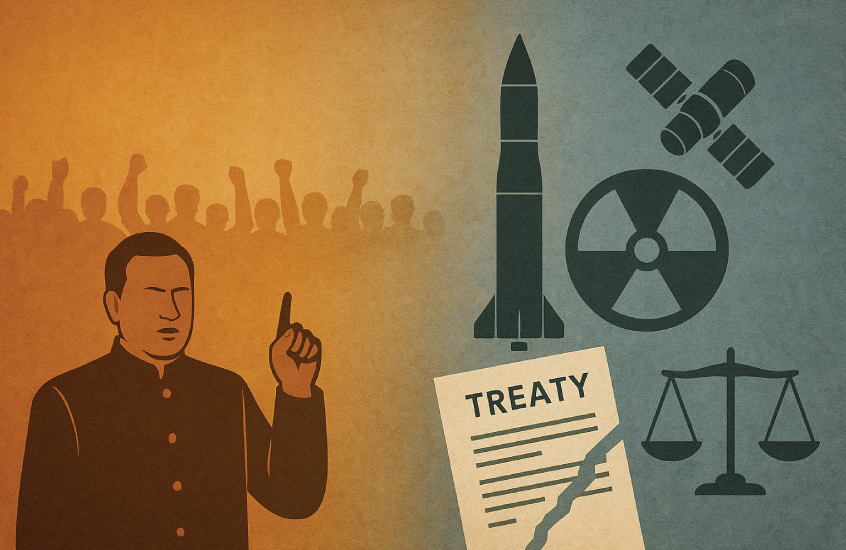ABSTRACT The interaction between domestic politics and arms control policy is a critical yet often underexplored dimension of strategic stability in South Asia. This paper examines how internal political dynamics in India influence its approach to arms control, disarmament, and strategic restraint. Traditionally viewed through the lens of regional security competition particularly with Pakistan and China, India’s arms control posture is also entrenched in domestic factors such as political ideology, bureaucratic interests, civil-military relations, electoral compulsions, and the influence of strategic elites. Using a qualitative methodology and process-tracing approach, this study analyzes key policy decisions from successive Indian governments especially under the Bharatiya Janata Party (BJP) and investigates how nationalist rhetoric, public opinion, and the political utility of strategic technologies (e.g., missile tests, nuclear modernization, and space militarization) have shaped India’s arms control behavior. The paper argues that India’s reluctance to embrace formal arms control mechanisms is not solely a response to external threats, but also a reflection of internal political incentives to project strength, technological autonomy, and strategic assertiveness. By contextualizing India’s withdrawal from multilateral arms control forums, its strategic ambiguity regarding the No First Use (NFU) policy, and its modernization of conventional and nuclear forces, the paper highlights the challenges such domestic-political linkages pose to regional arms control dialogues. The study contributes to the broader discourse on how democracies particularly rising powers steer the tension between strategic responsibility and domestic political gain. It also accentuates the necessity for regional and global arms control frameworks to account for internal political pressures when engaging states like India. Ultimately, this research seeks to enhance understanding of the domestic drivers of arms control policy in India and their implications for regional security, crisis stability, and the future of arms control in South Asia.
How Indian Domestic Politics Impacts Regional Arms Controls
235



